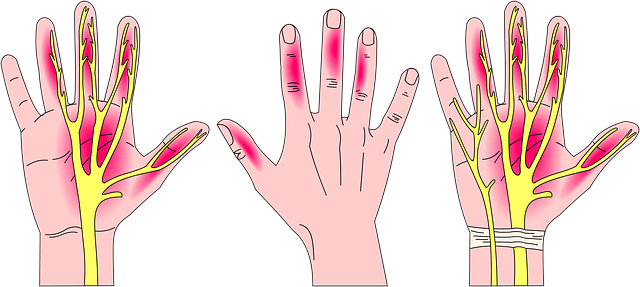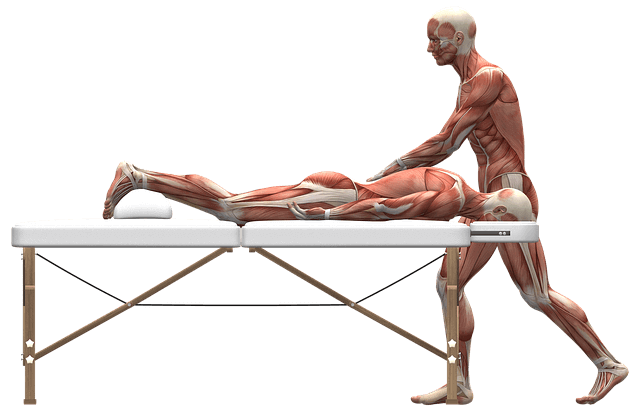When it comes to defining a healthy lifestyle, there is no one meaning. This is because the meaning of a ‘healthy lifestyle’ is different for each person. For some, health is defined by living a life that is disease free. For others, it could mean sticking to a diet plan and exercising regularly or being able to play with nieces and nephews. What does health mean to you?
Although the definition of health can vary from person to person, the fundamental need for good health is essential. When it comes to living a healthy life, we are in control of our nutrition, lifestyle, and well-being. But, when it comes to controlling factors such as pain, injury and disease we sometimes need to rely on someone else, that being- a physiotherapist.
Importance of health to our well-being
Health is crucial to everything we do; our daily functioning is driven by it. A balanced diet inclusive of whole grains, lean meats, vegetables, fruit and healthy fats promotes muscle development, weight management and sustains energy levels.

When we are able to maximize these factors, we can operate at our full potential. But, when our nutrition is unbalanced through a poor diet and irregular physical activity it can contribute to barriers that inhibit your body’s ability to heal itself from injury, pain and disease.
These are three of the leading factors that affect a person’s quality of life and overall well-being.
Factors we can control- committing to your own health and wellness

To enhance your ability to perform, you need to provide your body with a combination of two things- consistent exercise and proper nutrition. Both are in an individuals control and makes up their lifestyle. They work simultaneously together to provide you with the following benefits:
- Weight Management
- Determinant of health diseases & related conditions
- Improves mood
- Enhances energy
- Promotes sleep
- Improves mental stability
- Supports cognitive function
- Assists muscle repair/ strengthens
These factors are up to an individual to optimise and profoundly influence their lifestyle, pain, and risk of disease throughout their life.
Pain, injury & Disease- a foreign language

Simply put, diet and nutrition = in our control. We manage what goes in and out of our bodies, and we are the only thing stopping ourselves from exercising. But, when it comes to the little niggles, pains and medical diseases we are struck down with- How does one best manage this? Even our bodies require some form of maintenance when it comes to fixing problems.
We Google our symptoms endlessly and are open to a foreign language of medical terms that have no meaning to us. A relating underlying problem usually causes a problem- both of which a physiotherapist can pinpoint, and then treat.
Role of physiotherapy

No matter what age you are or how ‘healthy’ you perceive yourself to be, you can still be at risk of physical problems.
Physical problems affect our overall well-being and health because they somewhat dictate and determine what we can and can’t do at times. Our mobility is essential to our everyday lives, thus optimising it is the key to our wellness.
Physiotherapy can help to improve our quality of life as it uses a holistic approach to rehabilitate the human body and assist in the management and recovery of associated pain, injury, and medical conditions/ disorders. It assists in a wide range of areas including:
- Musco-skeletal problems: Are you experiencing back/ neck/ shoulder pain? Headaches & Migraines? Do you need post-operative support?
- Rehabilitation following car/ work accidents and injuries
- Nerve related pain: can be caused by disease and injuries, do you feel pain associated with an ‘electric shock, stabbing or burning?’
- Neurological disorders such as Parkinson’s, stroke, Multiple sclerosis (MS)
- General sports injuries relating to hamstring and calf tears, tendonitis and rehabilitation of injury
Physiotherapists use a multidisciplinary approach incorporating massage, manipulation, exercise and other treatments to alleviate pain and restore overall bodily function. They provide help both in-house and externally, providing patients with at-home exercises to assist the healing process.
Relationship between physiotherapy and an individual’s diet

Through a combination of effective therapies and a focus on nutrition and exercise, you are optimising your body’s ability to respond positively to treatments and muscle rehabilitation.
When you are experiencing an injury, illness, or pain, it is essential to promote and increase the oxygen supply to your muscles to aid in recovery. To do this, you need to ensure the proper reproduction of blood cells as your blood transports oxygen to all your bodily tissues.
Poor diet can inhibit this because your primary energy sources come from iron, glycogen and carbohydrates sources, proper nutrition is essential to ensure your body is functioning at optimum.
Research & Findings supporting Physiotherapy

There is a positive relationship between the effectiveness of physiotherapy treatment for individuals with recurrent problems. Research supports that the applied application of physiotherapy techniques and services alongside evidence based physiotherapy care is the most effective. Thus, when deciding on a physiotherapist practitioner, it is important to find one who demonstrates a multi-disciplinary approach.
Recurrent problems may include:
- Headaches & migraines
- Knee Pain
- Chronic low back pain
- Back Pain
- Shoulder pain and injury
Recurrent problems arise from low-problem areas that over time after neglecting, start affecting more parts of the body; this is because all tissues and muscles are connected.
Simply put, this means that your pain is an indication of a problem originating from somewhere else.
For example, if you are experiencing migraines this could be due to a nerve problem or bad posture may be the cause of your neck pain and rounded shoulders. When it comes to treatment options, research from clinical outcomes alongside scientific literature is used to confirm the overall effectiveness of the treatment.
For example, dry needling and acupuncture are now used commonly by practitioners. A study relating to the effectiveness of utilizing trigger points to relieve pain muscle pain was undertaken in 2011 titled ‘Treatment of myofascial trigger points in patients with chronic shoulder pain.’ Patients with shoulder pain were studied to learn if comprehensive treatment would be effective in reducing pain and improving overall shoulder mobility.
Physiotherapists relationship to humans

The role physiotherapists play in an individual’s general wellness, and quality of life is significant. Through alleviating pain to promoting a healthy diet, the opportunities to improve our current wellness and body problem areas are easily manipulable with the right help.
Author Bio:
Claudia Beck is an interior designer and writer with a passion for health and food currently living in Perth, Australia





